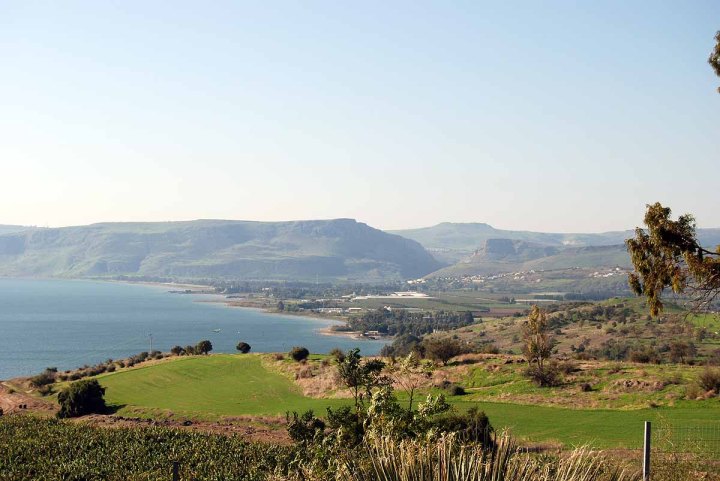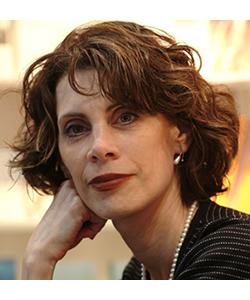Tikkun olam: two Hebrew words that mean repair of the world, healing the universe, mending the earth. The saints of the church are called to tikkun olam, and every one of us is a saint. You’re a saint if you go to church every Sunday or if you go once-a-year. You’re a saint if you can sing beautifully or if you sing off-key. You’re a saint if your faith has been strong your whole life or if you’ve come to come to God kicking and screaming the whole way.
The church isn’t a tent of the righteous, a club for those with all the answers, a preserve for the flawless. I like what Pope Francis had to say a while back: the church is more of a field hospital for those who know their need of God.
Recall the first of the Beatitudes: “Blessed are the poor in spirit, for theirs is the kingdom of God.” Meaning: blessed are those who know their need of God.
The high school student enduring stress and strain from all sides. Keep up your grades. Join a sport or club. Run for student government. Log your community service hours. Prepare for the SATs and get those college applications ready. And, oh, by the way, make sure to get at least eight hours of sleep a night. He knows his need for God.

The new parents beginning to feel the weight of the world. The awesome responsibility of bringing up children. Long hours at work, mortgage due every month, family members on both sides wanting to see you at the holidays, sleep deprivation, missing the time that you shared as a couple. They know their need of God.
Or the widow after all the attention, phone calls and cards expressing condolences. The long silences. The bitter difference between solitude and loneliness. The pain of being forgotten, out of sight, out of mind. She knows her need of God.
All of them saints. All of us saints. In the early days of the church, the saints weren’t the spiritual A-team or those of heroic sanctity. They were people just like you and me who recognized their need of God and God’s power to heal them.
God’s people were sick and they knew it. Sick from empire and political discord. Sick from violence and greed. Sick from unhealthy attachments and addictions. Sick from illness and poverty. Sick from fear of death. They all came to the field hospital equally in need of God.
There, they met the One who could heal them. They heard the message that they were made in God’s image and that no one, or nothing could take away that dignity.
They heard that even though they had made some unwise choices and wandered far in a land that is waste, their Father forgave them of their sin and welcomed them to the banquet table.
They were immersed in the lifegiving and liberating waters of baptism, fed by Christ’s Body and Blood. Anointed by the salve of the Holy Spirit, they were released from the hospital and sent out into the broken world to share what they had first received: tikkun olam.
All of them saints. All of us are saints called to mend the torn fabric of the world.
•
Recently, I attended an Episcopal Relief and Development Board Meeting. Serving on the board of this organization—which truly acts as the hands and feet of Christ—has been a profound learning experience for me.
I’ve learned about how we can work together with God to repair our broken world. I think of the 15,000 children in Zambia, many of them impacted by HIV/AIDS, who will grow up in stronger, healthier families because of our efforts. More on Episcopal Relief and Development’s work in Zambia
When I say “our,” I mean you, as St. John’s has consistently supported Episcopal Relief and Development.
I’m mindful of the work we’ll continue to do in Puerto Rico to provide long-term relief after the hurricanes. Bishop Wilfrido, a former Bishop of Puerto Rico who still lives there, sat next to me during the board meeting. He shared from his heart what it had been like to weather the hurricanes and what it meant to him that Episcopal Relief and Development was there for him and his people during their time of need.
My colleague and fellow board member, Genevieve, is a priest on staff at the Cathedral in Houston. During Hurricane Harvey, she and her people were also heartened by the support of Episcopal Relief and Development.
During the board meeting, Robert Bank, the CEO of American Jewish World Service, addressed our group. It was he who reminded us of those two words: tikkun olam. He reminded us that Jews and Christians can come together, nurtured by the deep roots of faith, to mend the world’s brokenness.
Remember that Jesus was a rabbi. His mission was tikkun olam. He discovered his mission as he read from Scripture in his hometown synagogue. The reading that day was from the prophet Isaiah:
“The spirit of the Lord God is upon me, because the Lord has anointed me; he has sent me to bring good news to the oppressed, to bind up the brokenhearted . . . to provide for those who mourn in Zion―to give them a garland instead of ashes, the oil of gladness instead of mourning, the mantle of praise instead of a faint spirit.” (Isa. 61:1, 3a)
These words sound familiar, don’t they? In them, we can here echoes of the Beatitudes. Blessed are the poor in spirit, the meek, whose who hunger and thirst for righteousness, the merciful, the pure in heart, the peacemakers. Blessed are you . . . tikkun olam.
When Jesus finished the reading, he boldly declared: “Today, these words have been fulfilled in your hearing.” He’s saying to them and us: “I’m the one who has come to proclaim the Kingdom of God and to mend a broken world.”
It’s that very same Jesus who goes up the mountain and sits down with his disciples. He teaches them what sainthood looks like in the real world: knowing our need of God. It means mourning with hope grounded in God’s comfort. It means meekness—not a word you here much anymore.
Don’t confuse meekness with weakness. To be meek is exercise power by pouring out our lives in humble service to others. The saints are meek ones who hunger for a right relationship with God and neighbor and thirst to live in a just world. They show mercy and possess a pure heart. They make peace and mend the earth. Tikkun olam.
It’s important that we learn these words right now and live them as saints of the church. It’s important because the social fabric of our nation and world is unraveling. We’re becoming strangers to each other.
In a recent column about our estrangement as Americans, the columnist, David Brooks, asks this question: “In a globalizing, diversifying world, how do we preserve individual freedom while strengthening social solidarity?” Full story here
He answers this question by exploring the work of Dr. Marcia Pally, a scholar who will speak at St. John’s and Temple Israel in January. She’s getting a lot of attention for her book entitled Commonwealth and Covenant.

Brooks summarizes her approach: “We want to go off and create and explore and experiment with new ways of thinking and living. But we also want to be situated—embedded in loving families and enveloping communities, thriving within a healthy cultural infrastructure that provides us with values and goals.”
He continues: “Creating situatedness requires a different way of thinking. When we go out and do a deal, we make a contract. When we are situated within something it is because we have made a covenant. A contract protects interests . . . but a covenant protects relationships. A covenant exists between people who understand they are part of one another. It involves a vow to serve the relationship that is sealed by love.”
As saints, marked as Christ’s own forever in baptism, we are situated in covenantal relationships sealed by love.
In our Baptismal Covenant, we vow to “to seek and serve Christ in all persons, loving our neighbors as ourselves, and to strive for justice and peace among all people, respecting the dignity of every human being.”
Or in the words of our opening prayer on this All Saints’ Day: “We are knit together . . . in one communion and fellowship in the mystical body of your Son Christ our Lord.”
As Christians, we are given an amazing amount of freedom to “explore and experiment with new ways of thinking and living.” The saints don’t move in lockstep—God gives us generous space for creative and unique responses to the Gospel.
One small example from our own community: about two years ago, a member of the parish came to me and asked if he could take on an unusual Lenten discipline.
Once a week during the season of Lent, he wanted to arrive at the church before daybreak so that he would be present as the sun began to fill the sanctuary with light.
As the sun rose, he wanted to accomplish a simple task: sharpening the little pencils in the pew racks right there in front of you. In all my years of ministry, no one had ever suggested sharpening pencils as a form of ministry. That’s what Dr. Pally means by separability.
But it was what came next that really moved me: this everyday saint of the church didn’t just sharpen the pew pencils. As he worked, he prayed for the person who would sit by that particular pencil the coming Sunday.
Now, look around this church. It’s a big space. Imagine how long it took for him to move from seat to seat, sharpening each pencil and praying for every person.
That’s what Pally means by situatedness and being embedded in loving families and enveloping communities.
Tikkun olam. As saints, we’re all knit together in this field hospital in which we can find healing and rest for our souls. Blessed are those who know their need of God and join in God’s work of mending our world. Amen.
A sermon preached at St. John’s Episcopal Church on All Saints’ Sunday, November 5, 2017
Go, Father Dave!
Sent from my iPhone
>
LikeLike